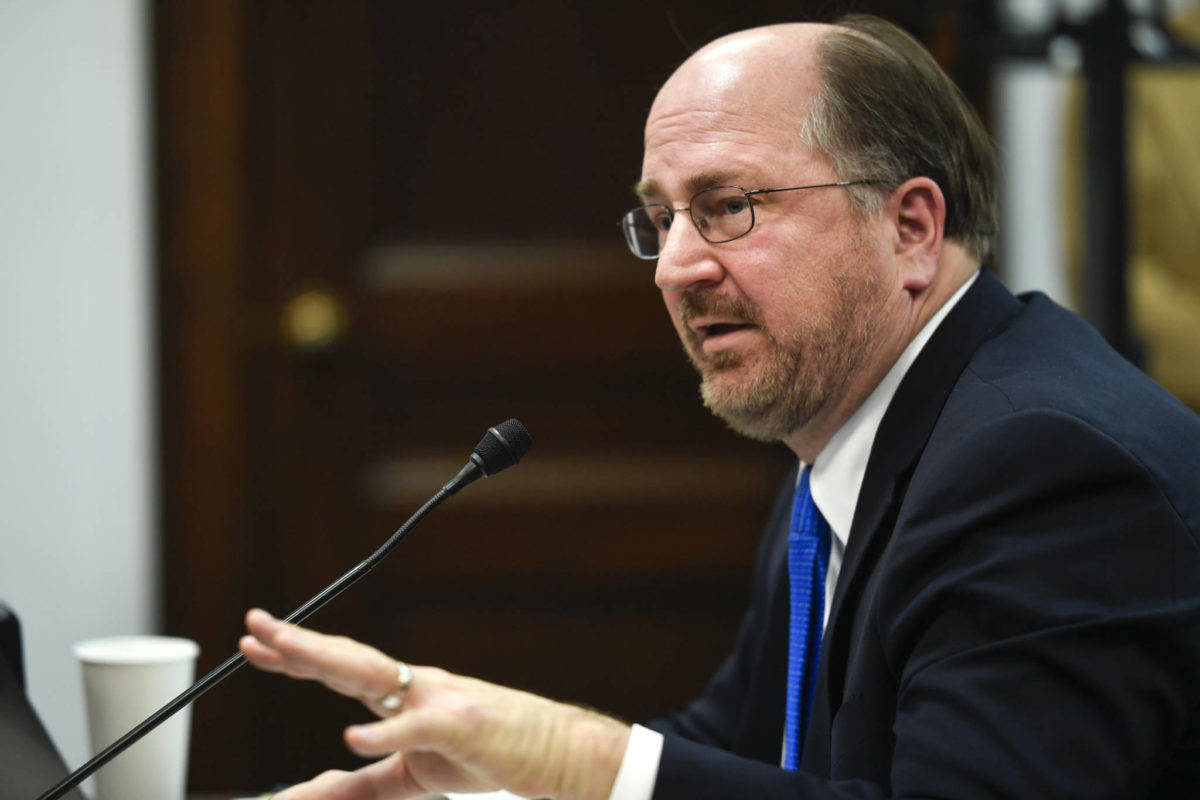The state has suffered recent blows in lawsuits driven by opinions issued by Alaska Attorney General Kevin Clarkson, with one legislative critic saying Clarkson is providing ideological opinions.
Sen. Bill Wielechowski, an Anchorage Democrat, also called Clarkson an activist attorney general.
But Michael Geraghty, a former attorney general, said he wouldn’t second-guess Clarkson or another attorney general and notes that lower-court decisions can be reversed.
On Thursday, a judge in Juneau sided with lawmakers in an education funding dispute and last month, a judge in Anchorage found the state erred in not certifying the application of a ballot proposal on elections. The state signaled plans to appeal both rulings.
This week, another judge granted a public employee union’s request to block enforcement of a plan calling for changes in the collection of dues while that case is heard. The judge, Superior Court Judge Gregory Miller, previously said the state’s proposed new policy was “unsupported by applicable case law.”
Clarkson has opined that the state isn’t fully compliant with a U.S. Supreme Court decision that found government workers can’t be forced to contribute to labor unions that represent them in collective bargaining.
Maria Bahr, a Department of Law spokeswoman, said Clarkson wasn’t available for an interview. When asked about the higher-profile cases, dealing with school funding and unions, she said by email that Clarkson stands by the opinions his office issued.
He also noted the superior court is not the final word, she said. The Alaska Supreme Court will have the last word on the school funding case and the state Supreme Court and potentially the U.S. Supreme Court will have the final word on the case involving unions, she wrote. The department has issued a request for proposals, seeking outside counsel to help with the union case.
State elections director Gail Fenumiai said she relied on the legal advice of Clarkson in rejecting an application by a group seeking to recall Gov. Mike Dunleavy. That decision in being challenged in court.
Clarkson, a Dunleavy appointee, was confirmed by lawmakers earlier this year. In private practice, he handled a range of cases though his work involving social issues drew attention during the confirmation process, with some gay rights and abortion rights advocates raising concerns.
Clarkson testified his advice to the governor would be based on the law.
“What I might think personally or what I might want personally isn’t the issue, and it isn’t important. What’s important is what the law is, and I respect the law,” he told a Senate hearing in January.
The education lawsuit stemmed from a May attorney general opinion questioning the validity of the Legislature’s advance funding of schools.
Lawmakers in 2018 passed a measure that called for school funding for the fiscal year that started July 1. The measure was not vetoed by Bill Walker, who was governor when it passed.
Clarkson said the Legislature’s action had the effect of improperly binding a future legislature and governor and violated a constitutional prohibition against dedicating state revenues. Dunleavy earlier this year had sought cuts to the school funds.
The Legislative Council, composed of House and Senate leaders, sued.
On Thursday, Juneau Superior Court Judge Daniel Schally wrote the Legislature’s intent in passing the funding was to give school districts advance notice and certainty. He said it is in keeping with the Legislature’s mandate to maintain a system of public education.
Clarkson, in a statement, said the decision “upends the appropriations process as we know it and could lead to one legislature and governor setting the budget five, six or more years in advance.”
• This is an Associated Press report by Becky Bohrer.

